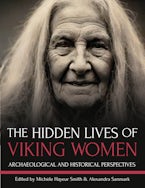All farming in prehistoric Europe ultimately came from elsewhere in one way or another, unlike the growing numbers of primary centers of domestication and agricultural origins worldwide. This fact affects every aspect of our understanding of the start of farming on the continent because it means that ultimately, domesticated plants and animals came from somewhere else, and from someone else. In an area as vast as Europe, the process by which food production becomes the predominant subsistence strategy is of course highly variable, but in a sense the outcome is the same, and has the potential for addressing more large-scale questions regarding agricultural origins. Therefore, a detailed understanding of all aspects of farming in its absolute earliest form in various regions of Europe can potentially provide a new perspective on the mechanisms by which this monumental change comes to human societies and regions. In this volume, we aim to collect various perspectives regarding the earliest farming from across Europe. Methodological approaches, archaeological cultures, and geographic locations in Europe are variable, but all papers engage with the simple question: What was the earliest farming like? This volume opens a conversation about agriculture just after the transition in order to address the role incoming people, technologies, and adaptations have in secondary adoptions.
The book starts with an introduction by the editors which will serve to contextualize the theme of the volume. The broad arguments concerning the process of neolithisation are addressed, and the rationale for the volume discussed. Contributions are ordered geographically and chronologically, given the progression of the Neolithic across Europe. The editors conclude the volume with a short commentary paper regarding the theme of the volume.
Integrating domesticates: earliest farming experiences in the Iberian Peninsula, Roger Alcantara
The earliest agriculture in Hungary, Eszter Bánffy
Who were the earliest farmers? Interactions – innovations – adaptations in the earliest Neolithic of the Central Balkans, human bioarchaeological perspectives, Camille de Becdelievre
The slow Neolithisation: a case study from western Norway, Knut Andreas Bergsvik
Earliest farming in North-Western Mediterranean: Evidences from Castellar-Pendimoun during the 6th Millennium BCE, Didier Binder
The Discontinuous Establishment of Farming Communities on the North European Plain, 5300-4000 B.C., Peter Bogucki
The role and nature of early animal husbandry in secondary Neolithisation: The Dutch and eastern Aegean cases in comparative perspective, Canan Cakirlar
Can spatio-temporal kernels provide a better understanding of the earliest farming expansion through the mediterranean?, Agustín Diez Castillo
The earliest agriculture in Portugal, Simon Davis
Culture and context of the Scandinavian Neolithic, Håkon Glørstad
Early Neolithic farming in southern Scandinavia, Kurt Gron
The earliest farming package in Greece: questions of scale, intensity and agro-pastoral integration, Paul Halstead
Pioneer farming in the Balkans during the early sixth millennium BC: integrating quantitative bioarchaeological datasets with bioclimatic parameters, Maria Ivanova
The character of the early Neolithic farming. A view from the Polish lowlands, Arkadiusz Marciniak
The northern fringe of early farming in Europe-insights from ancient genomes, Alissa Mittnik
Simple life of LBK settlers in Kuyavia? Example from site 10 in Kruszyn, Włocławek province, Dominik Płaza
One size does not fit all? Interpreting complex diachronic Neolithic-period data in Norway, Christopher Prescott
The first farmers on the Vistula River in the Polish Lowlands, Joanna Pyzel
The first Italian farmers and their vegetable food: choices, productions, environmental aspects,
Mauro Rottoli
First farmers in Liguria, northwestern Italy: new evidence from Arene Candide, Peter Rowley-Conwy
The earliest farming in Britain, Peter Rowley-Conwy
Biased data or hard facts? How to interpret the earliest agrarian evidences in south Scandinavia, Lasse Sørensen
Origins and evolution of pig domestication in Italy: A biometrical study, Sofia Tecce
Kurt Gron is a Post-Doctoral Research Associate, Department of Archaeology, Durham University. He specialises in wild and domestic fauna from the Stone Age in northern Europe stable isotope geochemistry; shell middens and shell midden taphonomy.
Lasse Sørensen is Associated Professor in Archaeology at Århus University specialising in Mesolithic and Neolithic economic developments and zooarchaeology.
Peter Rowley-Conwy is professor of environmental archaeology at Durham University. He specialises in hunter-gatherers, early farmers, and the transition to agriculture. He has worked on Mesolithic and Neolithic animal bones in various parts of Europe including Denmark, Italy and Portugal, and the Middle East.












